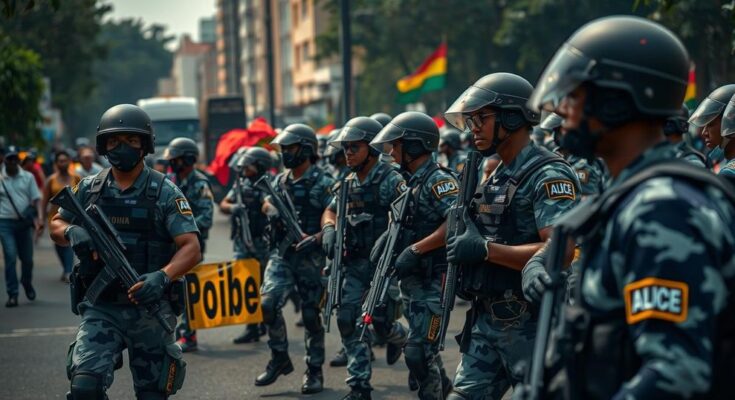Mozambique is engulfed in a political crisis following disputed elections that led to violent protests, resulting in the tragic deaths of young protesters, including minors. The ruling Frelimo party’s claimed victory has faced accusations of fraud, igniting public outcry and civil unrest. Police actions have been condemned, alleging excessive force while conflicting narratives regarding the need for self-defense versus the protection of protest rights persist. The fallout highlights the urgent call for political reform and accountability in Mozambique.
The recent electoral crises in Mozambique have led to widespread protests following allegations of electoral fraud, resulting in tragic fatalities among the youth, including minors. Antonio Juaqim, a 16-year-old boy, was among the protesters shot dead during a demonstration in opposition to the election results which declared the ruling Frelimo party as the victor. As citizens express their dissent, they have taken to banging pots and pans at night, a form of peaceful protest against Frelimo’s prolonged governance, now reaching 49 years. The situation escalated when police were accused of utilizing excessive force, claiming they needed to protect themselves against violent protests. Multiple fatalities have resulted, with conflicting narratives surrounding the reasons and accountability for the violence.
The current political unrest has deep roots in the discontent among the young population, as frustration grows over lack of employment and economic stability. The deaths of children and young adults during these protests underscore the severity of the crisis faced by the nation, with human rights organizations reporting a significant death toll from police actions. Despite expressions of sympathy from police authorities, the narrative continues to unfold amid critiques regarding the legitimacy of the electoral process and the future of Mozambique’s democracy.
Mozambique has been experiencing a significant political crisis following the recent presidential elections held on October 24, where the ruling Frelimo party claimed a resounding victory, securing 71% of the votes. The opposition, led by Venâncio Mondlane of the Renamo party, has vehemently contested the results, alleging widespread electoral fraud and manipulation. This alarming situation has prompted the youth to engage in protests, symbolized by the nightly act of banging pots and pans, a signal of their dissatisfaction with the current regime. However, these protests have resulted in tragic violence, particularly against children, raising urgent questions about governance, police conduct, and the overarching societal implications of such unrest.
The tragic events in Mozambique reflect a deep-seated discontent with the ruling party’s prolonged authority and the pressing need for political and economic reforms. The fatal encounters with police during peaceful protests raise significant concerns regarding human rights violations and the safety of citizens, particularly the youth. As the nation’s political landscape continues to evolve, the demand for accountability and justice remains paramount among the grieving families and the general populace, marking a critical juncture for Mozambique’s democratic future.
Original Source: www.bbc.com




